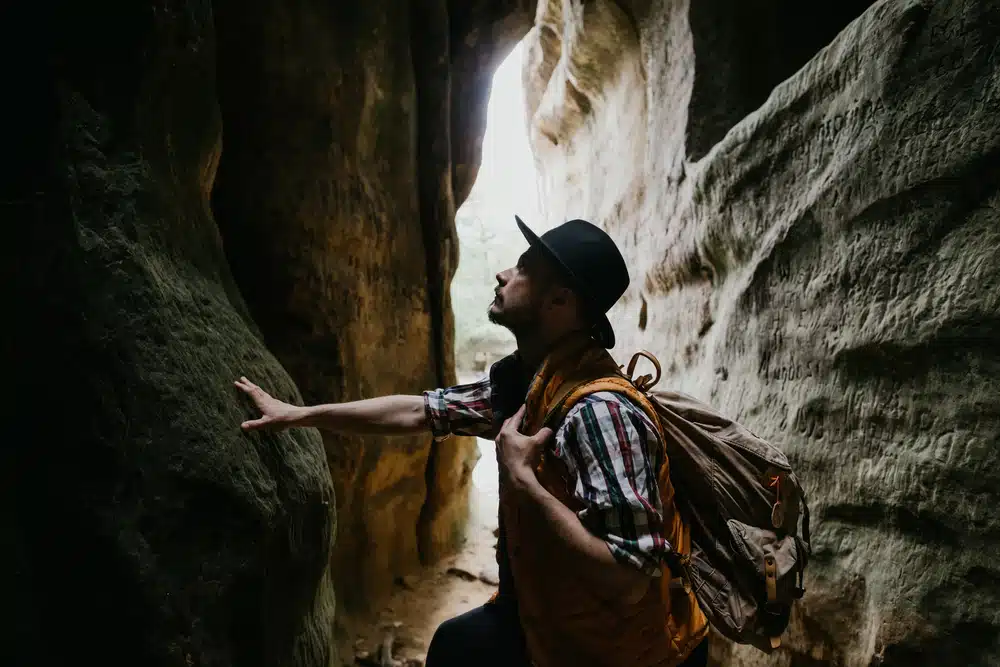The Best Geology Schools: A Guide to the Best Geology Programs
Geology is an exciting and challenging field that allows students to explore the world around them and study the fascinating history of our planet. For students who are passionate about geology and want to pursue a career in the field, it’s important to attend a reputable and top-ranked geology school. In this blog post, we’ll take a look at some of the best geology schools in the world.
Why study geology?
So, why study geology? Geology is the study of the Earth, its history, structure, and the natural processes that shape our planet. It is a fascinating field that can help us understand the world around us and our place in it. Here are some reasons why studying geology can be beneficial:
Understanding Earth’s history: Geology allows us to understand the history of the Earth, including the formation of continents, oceans, and mountains. By studying rocks, fossils, and other geological features, we can learn about the evolution of life and the changes that have occurred on our planet over millions of years.
Natural resources: Geology plays a crucial role in the discovery and management of natural resources such as oil, gas, coal, and minerals. Geologists use their knowledge to locate and extract these resources and ensure they are used sustainably.
Environmental protection: Geology can help us understand the impact of human activities on the environment, such as mining, fracking, and drilling. By studying the Earth’s systems and natural processes, geologists can develop strategies to mitigate environmental damage and ensure sustainable development.
Hazard mitigation: Geology is essential for predicting and mitigating natural hazards such as earthquakes, volcanoes, landslides, and floods. By understanding the underlying geology, geologists can identify potential hazards and develop plans to mitigate their impact.
What to expect in a geology degree?
What to expect in a geology degree? Studying at the best geology schools typically provides students with a strong foundation in the basic principles of geology and a broad understanding of the Earth and its processes. Here are some of the things you can expect from a geology degree program:
Core courses: Geology degree programs typically require students to take core courses in subjects such as mineralogy, petrology, sedimentology, structural geology, and geophysics. These courses provide students with a basic understanding of the physical and chemical properties of rocks, how they form, and how they are affected by tectonic forces and other geological processes.
Fieldwork: Many geology degree programs include fieldwork as part of the curriculum. This can involve field trips to geological sites to study rock formations, landforms, and geologic features. Fieldwork provides students with hands-on experience and the opportunity to apply the theoretical concepts they have learned in the classroom.
Laboratory work: Geology degree programs also require laboratory work to analyze rock samples, map geological features, and conduct experiments. This provides students with practical experience in using analytical techniques and equipment commonly used in the field.
Electives: Geology degree programs often offer a range of elective courses that allow students to specialize in a particular area of geology, such as environmental geology, geophysics, geochemistry, or hydrology. Electives provide students with the opportunity to explore their interests and develop specific skills and knowledge in their chosen fields.
Research: Many geology degree programs offer opportunities for students to conduct independent research projects under the guidance of faculty members. This provides students with valuable experience in designing and conducting research, analyzing data, and presenting their findings.
Career preparation: Geology degree programs often include career preparation courses, workshops, and internship opportunities. These provide students with the skills and knowledge needed to pursue careers in the geology industry or to continue their education in graduate school.
Best geology schools
There are many excellent geology schools around the world, each with its unique strengths and areas of focus. Here are some of the best geology schools, based on rankings and reputation:
Massachusetts Institute of Technology (MIT) – Cambridge, Massachusetts, USA
MIT has a highly regarded Department of Earth, Atmospheric, and Planetary Sciences that offers undergraduate and graduate programs in geology. The department’s research focuses on a broad range of topics, including climate change, environmental science, geophysics, and planetary science.
California Institute of Technology (Caltech) – Pasadena, California, USA
Caltech’s Division of Geological and Planetary Sciences is recognized for its research in seismology, mineralogy, geochemistry, and tectonics. The division offers undergraduate and graduate programs in geology, as well as opportunities for research and fieldwork.
University of Oxford – Oxford, United Kingdom
The Department of Earth Sciences at the University of Oxford is one of the oldest and most prestigious geology schools in the world. The department’s research focuses on a wide range of topics, including geodynamics, planetary science, and climate change. The department offers undergraduate and graduate programs in geology, as well as opportunities for fieldwork and research.
ETH Zurich – Zurich, Switzerland
ETH Zurich’s Department of Earth Sciences is highly regarded for its research in seismology, geodynamics, and mineralogy. The department offers undergraduate and graduate programs in geology, as well as opportunities for research and fieldwork.
University of California, Berkeley (UC Berkeley) – Berkeley, California, USA
UC Berkeley’s Department of Earth and Planetary Science is recognized for its research in tectonics, climate change, and environmental science and is considered one of the best geology schools. The department offers undergraduate and graduate programs in geology, as well as opportunities for research and fieldwork.
Imperial College London – London, United Kingdom
Imperial College London’s Department of Earth Science and Engineering is highly regarded for its research in petroleum geoscience, seismology, and geochemistry. The department offers undergraduate and graduate programs in geology, as well as opportunities for research and fieldwork.
University of Cambridge – Cambridge, United Kingdom
The Department of Earth Sciences at the University of Cambridge is recognized for its research in climate change, geophysics, and geochemistry. The department offers undergraduate and graduate programs in geology, as well as opportunities for research and fieldwork.
University of Tokyo – Tokyo, Japan
The Department of Earth and Planetary Science at the University of Tokyo is highly regarded for its research in seismology, mineralogy, and petrology. The department offers undergraduate and graduate programs in geology, as well as opportunities for research and fieldwork.
University of Michigan – Ann Arbor, Michigan, USA
The Department of Earth and Environmental Sciences at the University of Michigan is recognized for its research in tectonics, climate change, and environmental science. The department offers undergraduate and graduate programs in geology, as well as opportunities for research and fieldwork.
University of Melbourne – Melbourne, Australia
The School of Earth Sciences at the University of Melbourne is highly regarded for its research in geology, environmental science, and geochemistry. The school offers undergraduate and graduate programs in geology, as well as opportunities for research and fieldwork.
Careers in geology
Finishing in the best geology schools opens a wide variety of opportunities. Here are some of the most common careers in geology:
Exploration Geologist: Exploration geologists use their knowledge of geology to find and assess mineral and energy resources. They collect and analyze geological data and samples, and use this information to locate deposits of oil, gas, coal, metals, and other minerals.
Environmental Geologist: Environmental geologists assess the impact of human activities on the earth’s environment. They evaluate soil and water quality, assess environmental risks, and design and implement remediation plans for contaminated sites.
Engineering Geologist: Engineering geologists study the properties of rocks and soil to determine their suitability for construction projects. They evaluate the stability of slopes, hillsides, and foundations, and assess the risk of landslides, earthquakes, and other hazards.
Hydrogeologist: Hydrogeologists study the properties and movement of groundwater, and assess its availability and quality. They evaluate the impact of human activities on groundwater resources, and design and implement plans to manage and protect them.
Petroleum Geologist: Petroleum geologists explore and develop oil and gas deposits. They study the geology of sedimentary basins, analyze seismic data, and use geological models to locate and assess oil and gas reserves.
Geoscience Educator: Geoscience educators teach geology and related subjects at the high school, college, and university levels. They design and deliver lectures, develop course materials, and supervise student research projects.
Geophysicist: Geophysicists use physics and mathematics to study the earth’s structure, composition, and processes. They use techniques such as seismology, gravity, and electromagnetic surveys to collect data and develop models of the earth’s interior.
Geotechnical Engineer: Geotechnical engineers design and implement solutions for construction projects that involve earth materials. They evaluate soil and rock properties, design foundations and slopes, and assess the risk of geological hazards such as landslides and earthquakes.
If you’re passionate about geology and want to pursue a career in the field, attending one of the best geology schools is essential. The universities listed above are some of the best in the world and offer rigorous geology programs, state-of-the-art research facilities, and access to renowned faculty members. By attending one of these schools, you’ll be well-prepared for a successful career in geology.
Learn more about college by consulting with college admissions specialists like the ones found here in AdmissionSight. At AdmissionSight, we have over 10 years of experience guiding students through the competitive admissions process to get accepted to the top universities in the world. Feel free to set up an appointment today to book your initial consultation.










































